
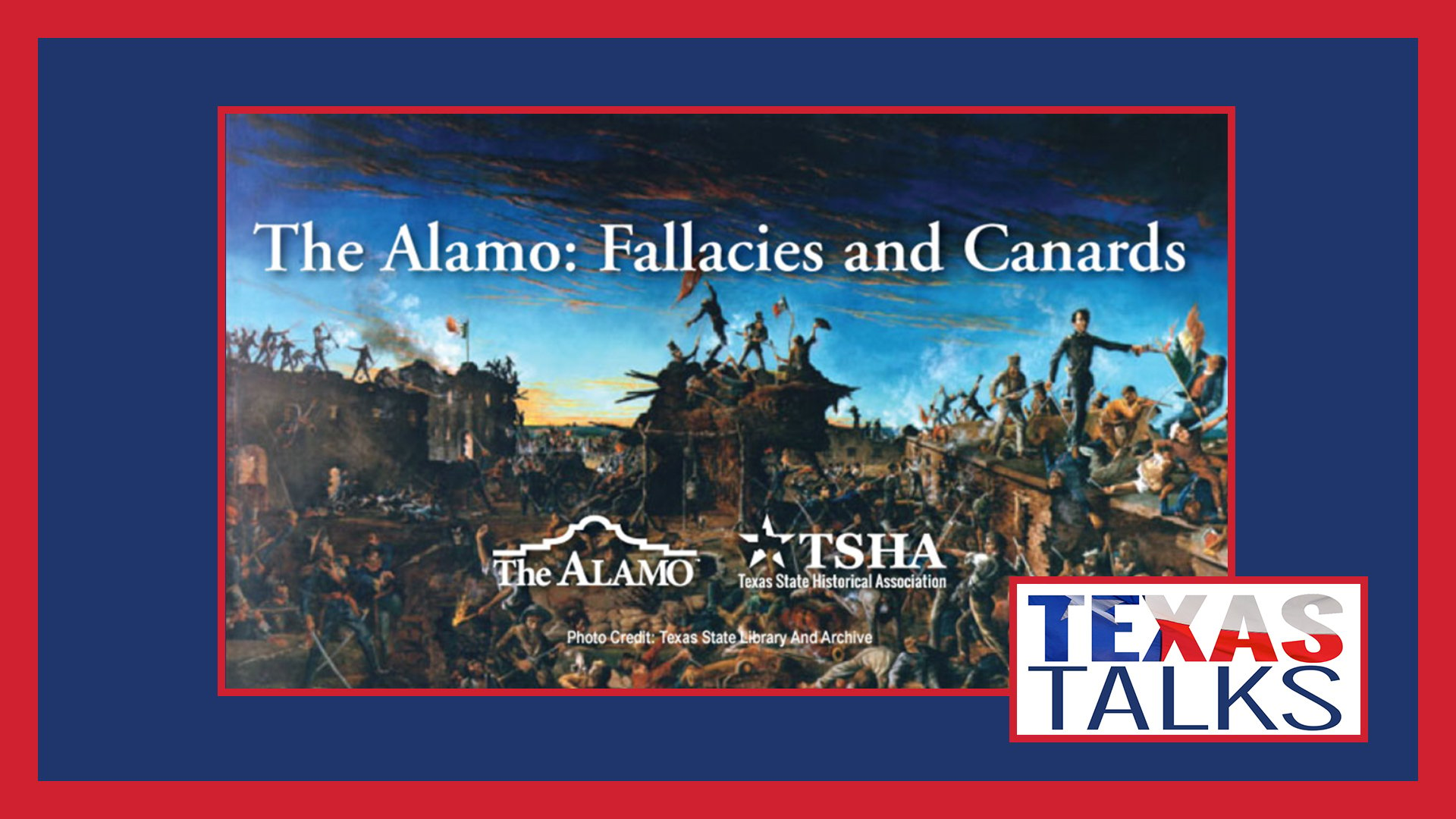
After an iconic thirteen day siege on March 6, 1836, the Mexican army re-gained control of the Alamo from the Texas revolutionaries. This tragic event, memorialized through both history and legend, has gained a larger than life reputation. Join us on March 6, 2017, as Dr. Bruce Winders and Dr. Stephen Hardin distinguish fact from fiction and discuss new research from the last twenty years of Alamo history.
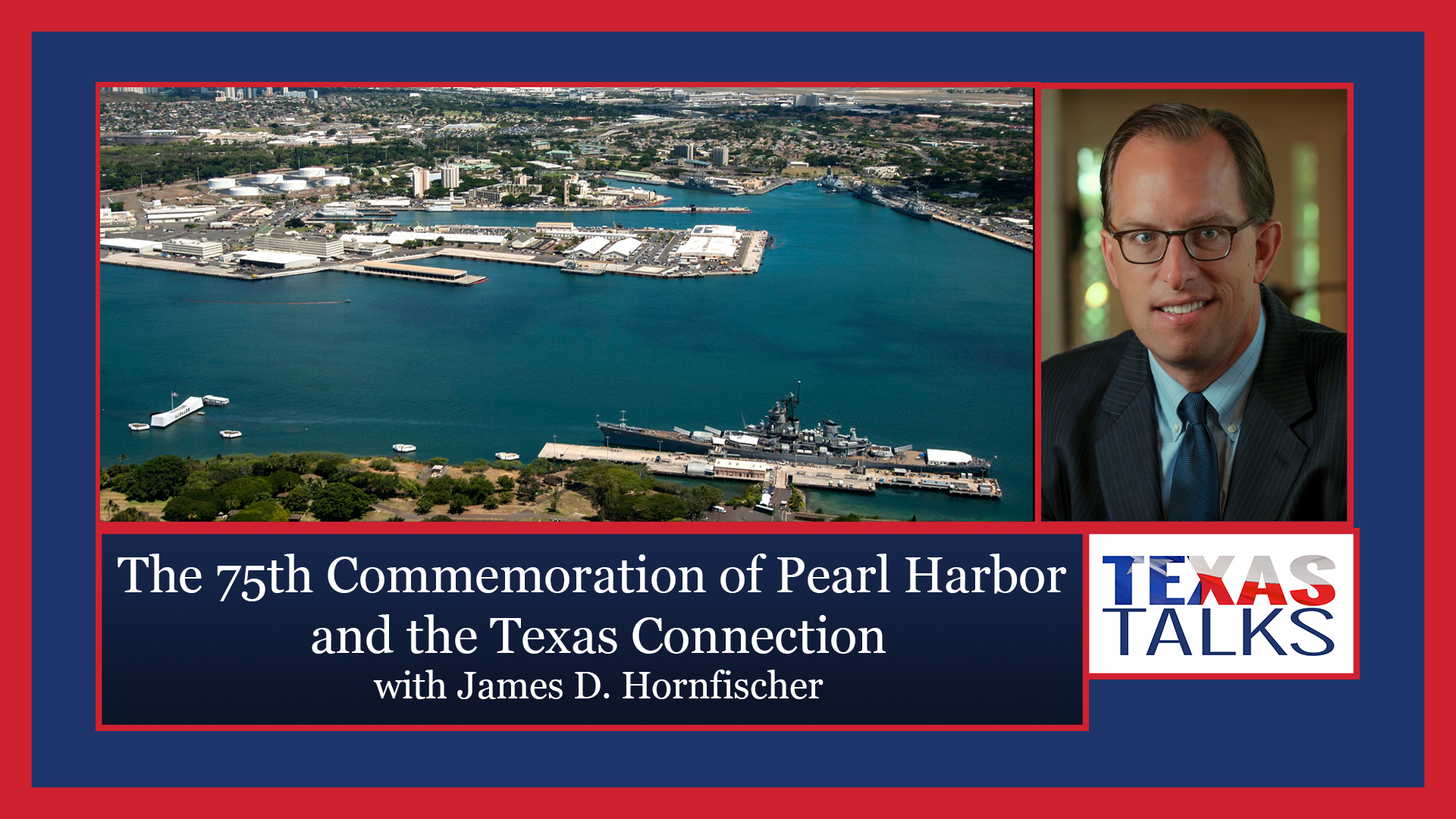
Bestselling author James D. Hornfischer and Joe Cavanaugh from the National Museum of the Pacific War discuss the history surrounding the attack on Pearl Harbor and its connection to Texas. Admiral Chester Nimitz was named the commander-in-chief of the Pacific Fleet weeks after the attack on Pearl Harbor, and led America's naval response to the attack. The event was filmed at the National Museum of the Pacific War in the Admiral Nimitz Museum Ballroom in Fredericksburg.
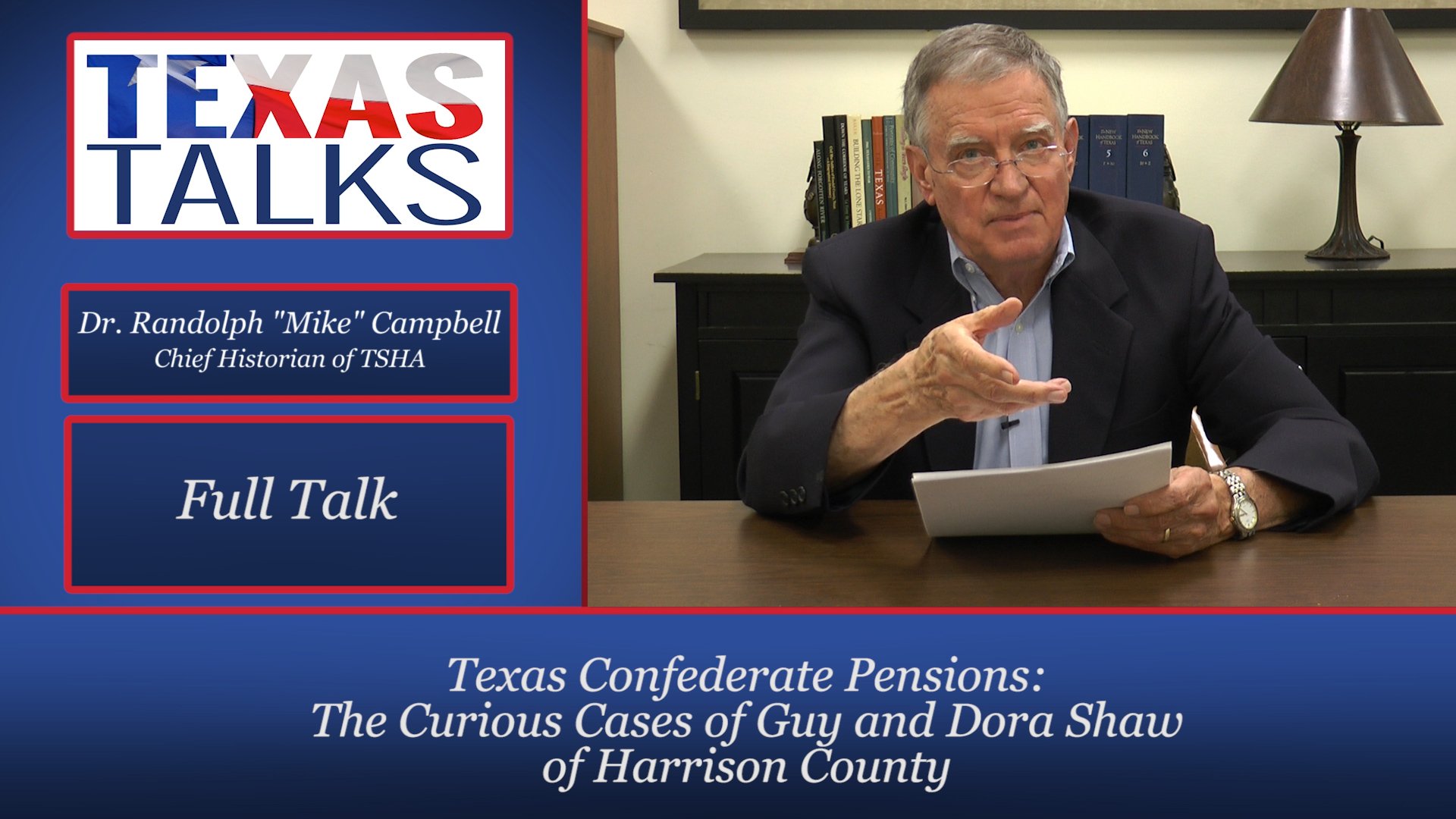
Join TSHA Chief Historian Randolph “Mike” Campbell as he reveals an untold story he uncovered while researching for his book, A Southern Community in Crisis: Harrison County, Texas 1850-1880. “Texas Confederate Veteran Pensions: The Curious Cases of Guy and Dora Shaw of Harrison County,” focuses on the complex race relations in East Texas following the Civil War. Dr. Campbell uses primary archival sources to tell this story.
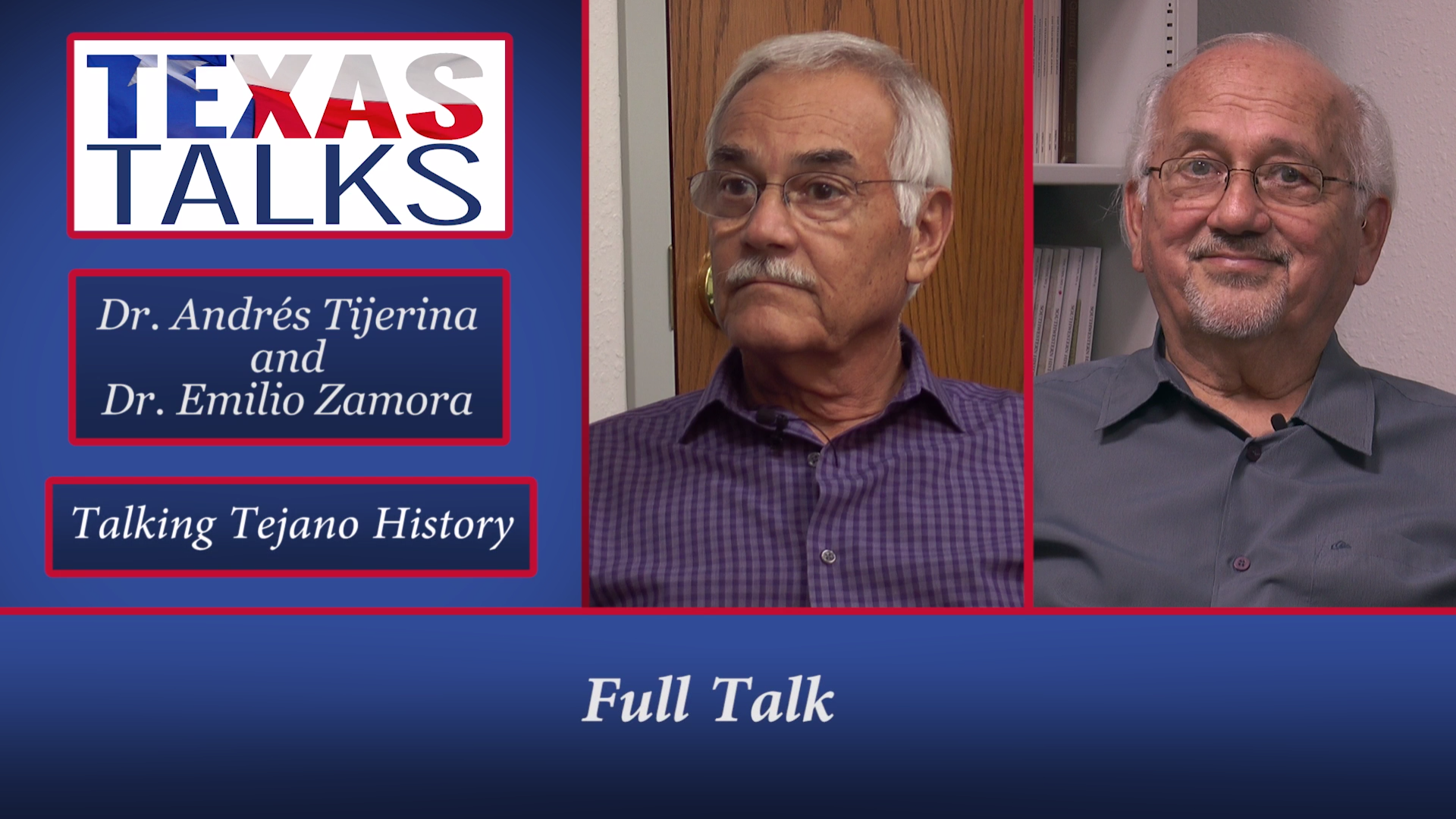
Dr. Andrés Tijerina and Dr. Emilio Zamora explain the Handbook of Tejano History project, review the roots of Tejano history, and examine new research in the field.
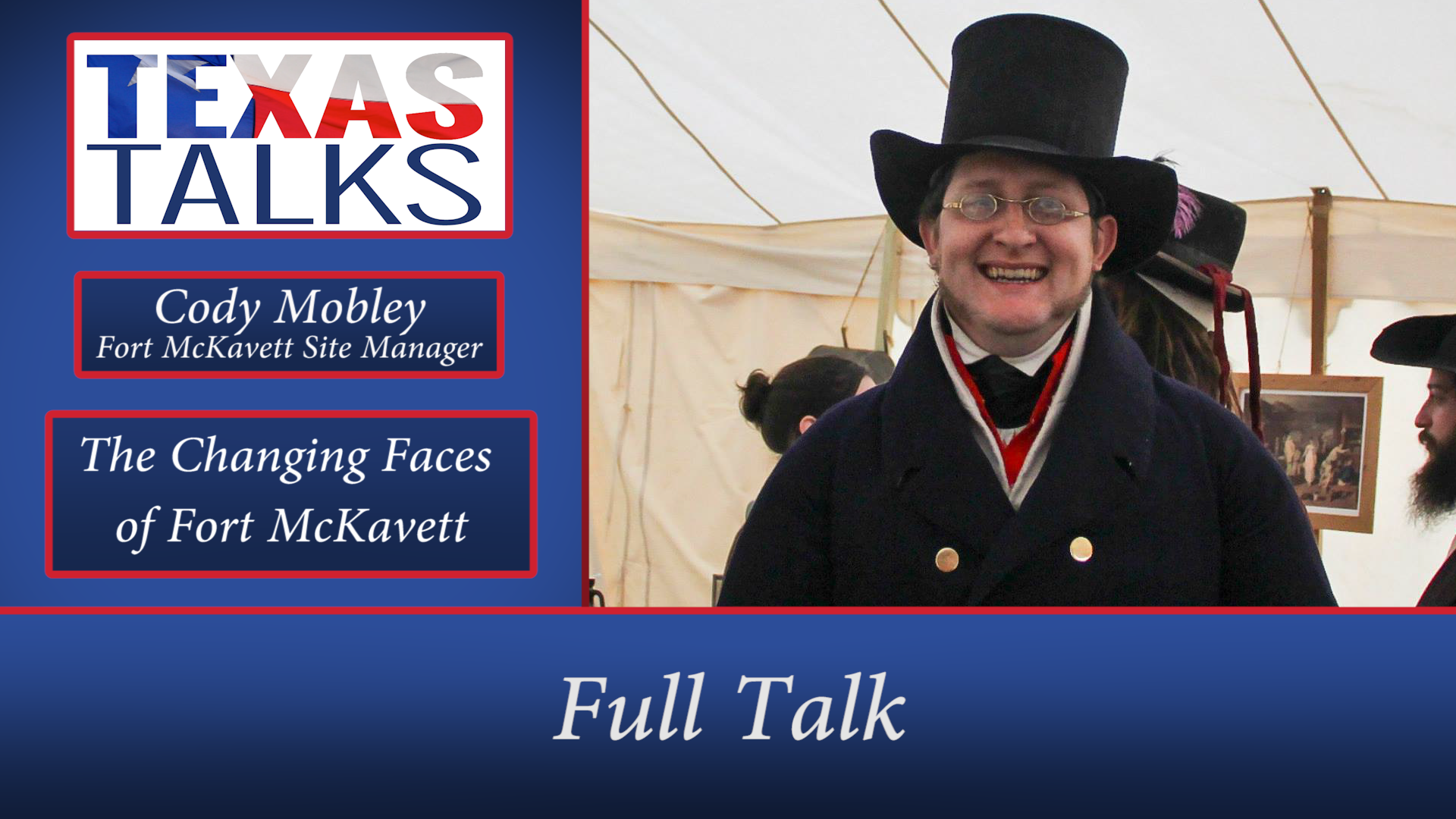
Learn more about the fascinating frontier fort that was home to several regiments of infantry, cavalry, and their families from Site Manager, Cody Mobley. Cody tells the history of the fort and discusses both military and domestic uses of the fort over the years.
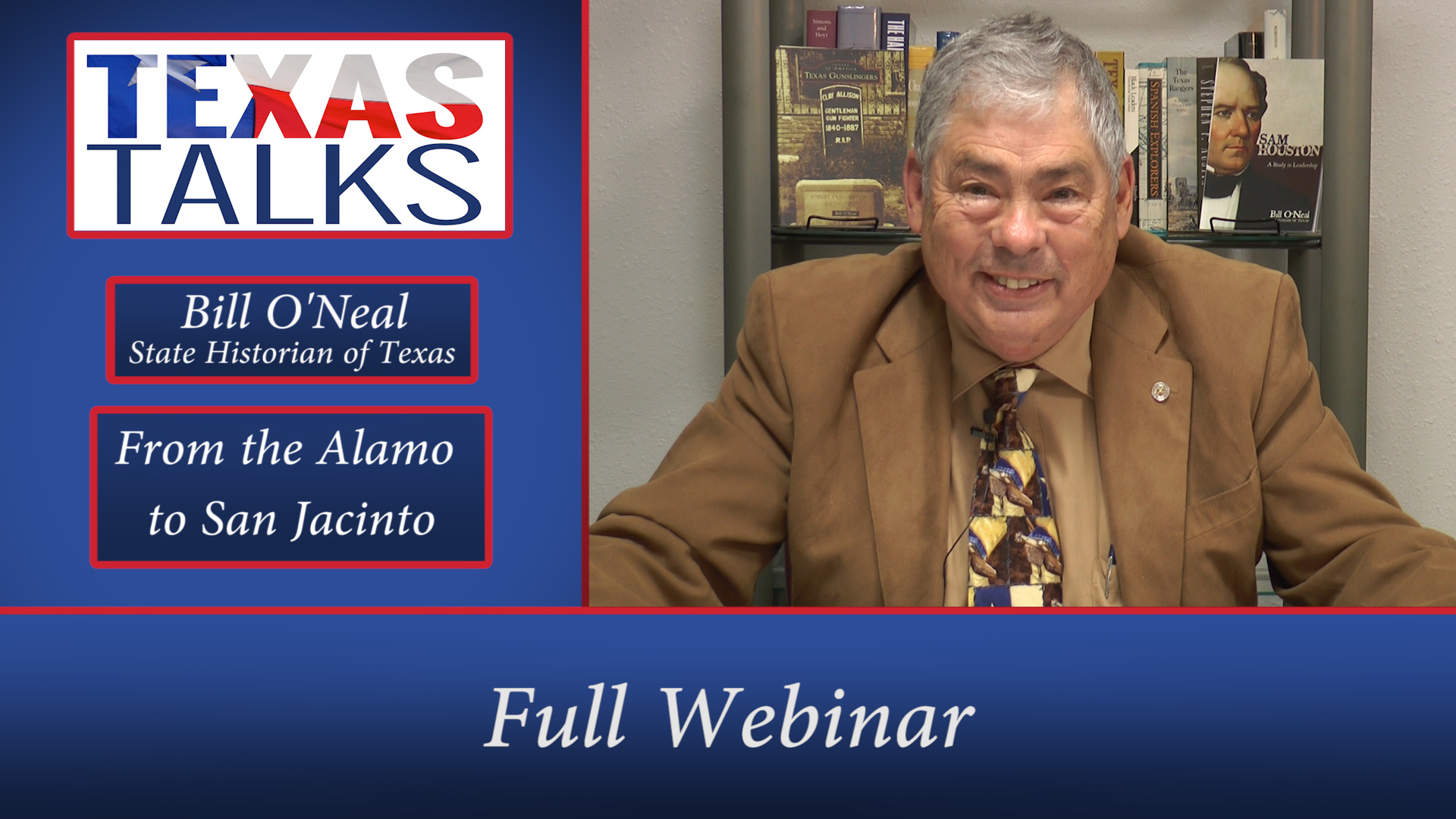
State Historian of Texas Bill O’Neal focuses this Texas Talk on two key battles of the Texas Revolution: the battle of the Alamo and San Jacinto. He expands on these two battles that became the most notable during the Texas Revolution. He provides a fascinating talk on historical figures and heroes of the Texas Revolution. Bill O’Neal is an author, historian, Texas scholar, and the State Historian of Texas.
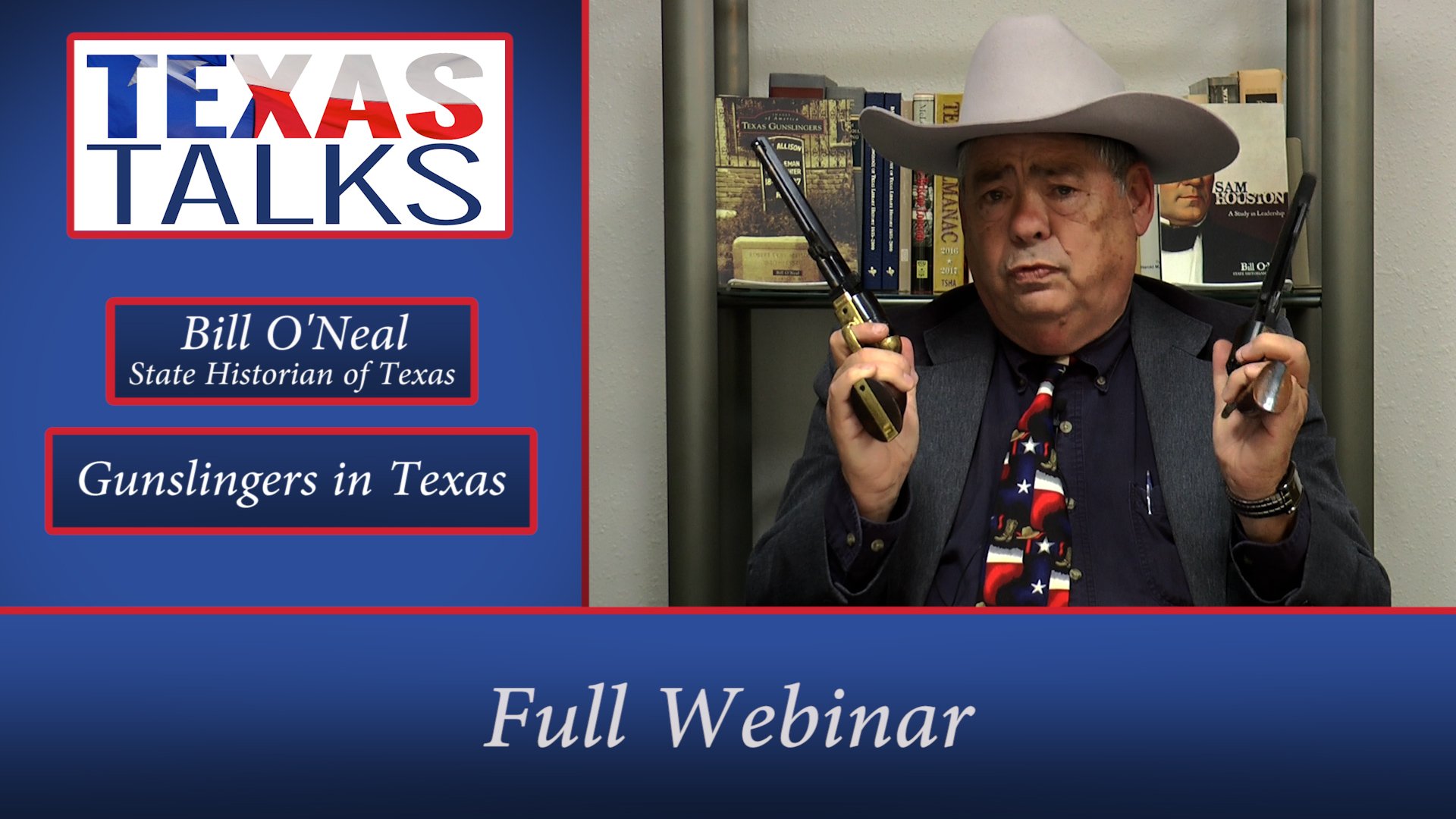
State Historian of Texas, Bill O’Neal, is an author, historian, and Texas scholar. In 1970, he became a full-time faculty member at Panola College, a position that he held for thirty-three years. O’Neal has written 42 books on a variety of historical topics, as well as 300 articles and book reviews. True West Magazine named Bill the “Best Living Non-Fiction Writer” in 2007, and in 2012 the Wild West History Association presented him its Lifetime Achievement Award. In August 2012 he was sworn in as State Historian of Texas by Governor Rick Perry. He presents his talk on the history of Gunfighters in Texas. Bill O’Neal provides a fascinating summary of the data and offers new insights into the nature of the western gunmen and of the feuds and fights that bloodied the West. For example, he relates how a large number of the gunfighters used guns as tools of their trades, legitimate and otherwise—lawmen and detectives, buffalo hunters, army scouts, thieves, hired killers, and the like. Of the gunfighters included here 108 served as law officers at some time in their careers. The average lifespan, including those who died of natural causes, was forty-seven years, and more than 50 percent of the gunmen died from gunshot wounds.
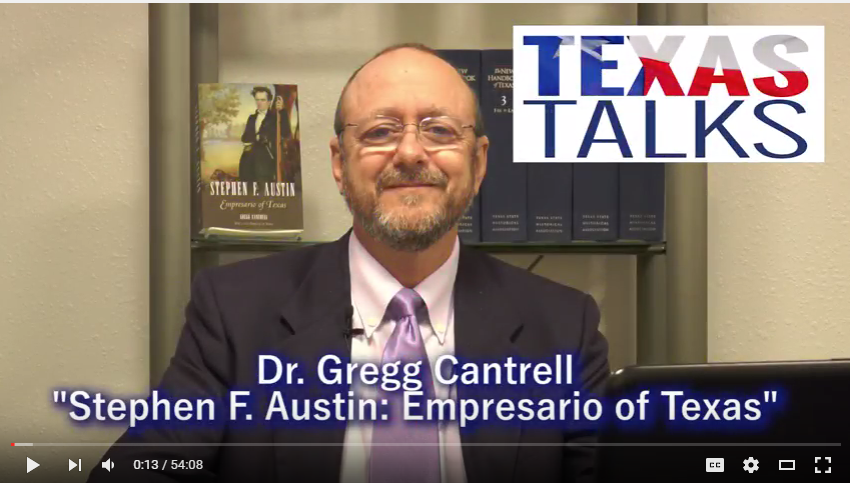
Texas Christian University Historian Dr. Gregg Cantrell gives a talk on Stephen F. Austin, the man known by some as the "Father of Texas." In this talk, Dr. Cantrell lays out Austin's accomplishments in life and how historians remember him today.
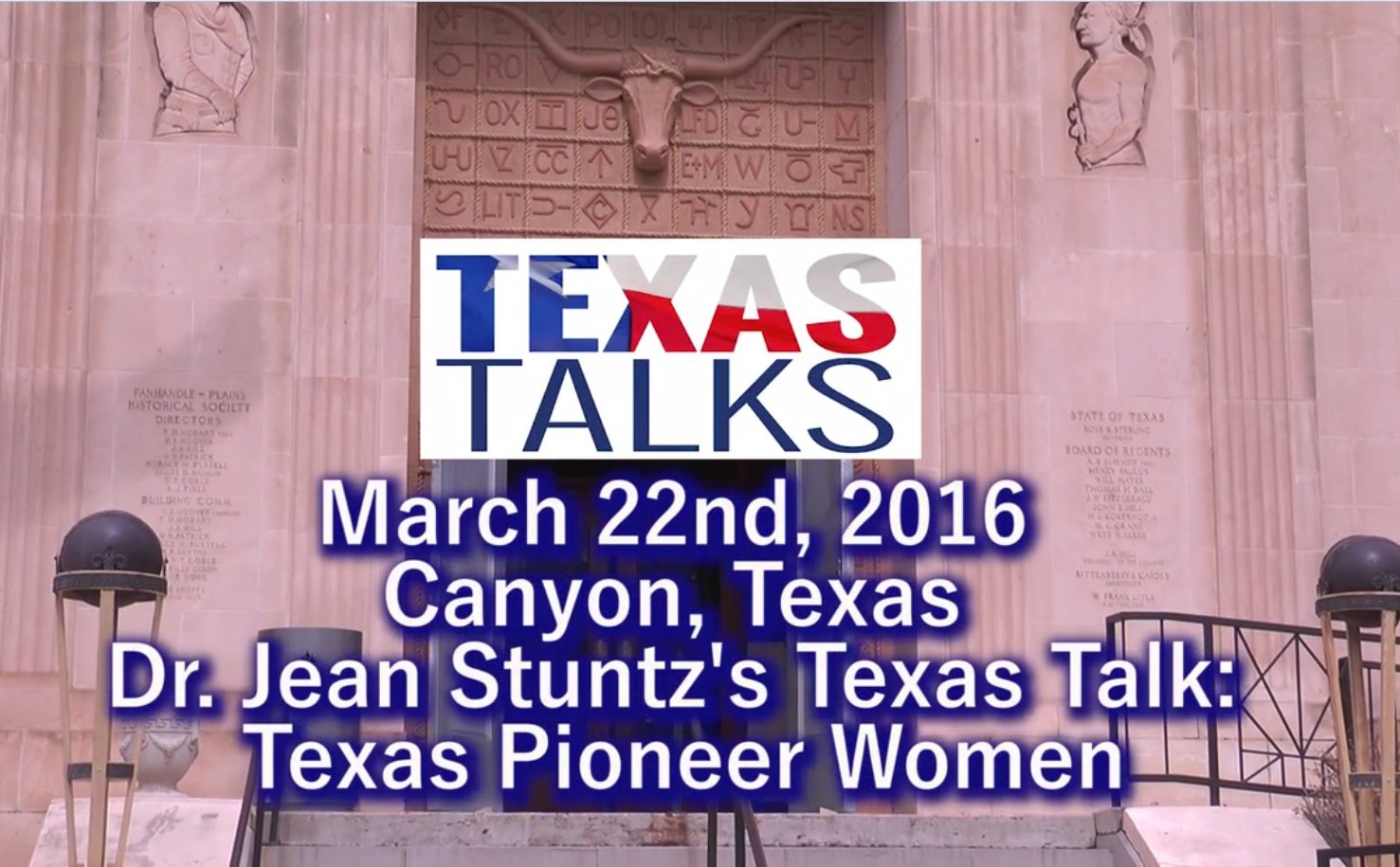
At the Panhandle-Plains Historical Museum, on March 22, 2016, Dr. Jean Stuntz spoke to a live audience on the experiences of pioneer women in Texas, from the Spanish era to the early 20th century in Texas. The footage was rebroadcasted on March 31 for an online audience. Stuntz themes her talk around the major 6 flags of Texas and focuses on the particular experiences of women in the Panhandle. Using newspapers and memories for her research, Stuntz describes a number of unique experiences that women faced in the tough, isolating frontier space.
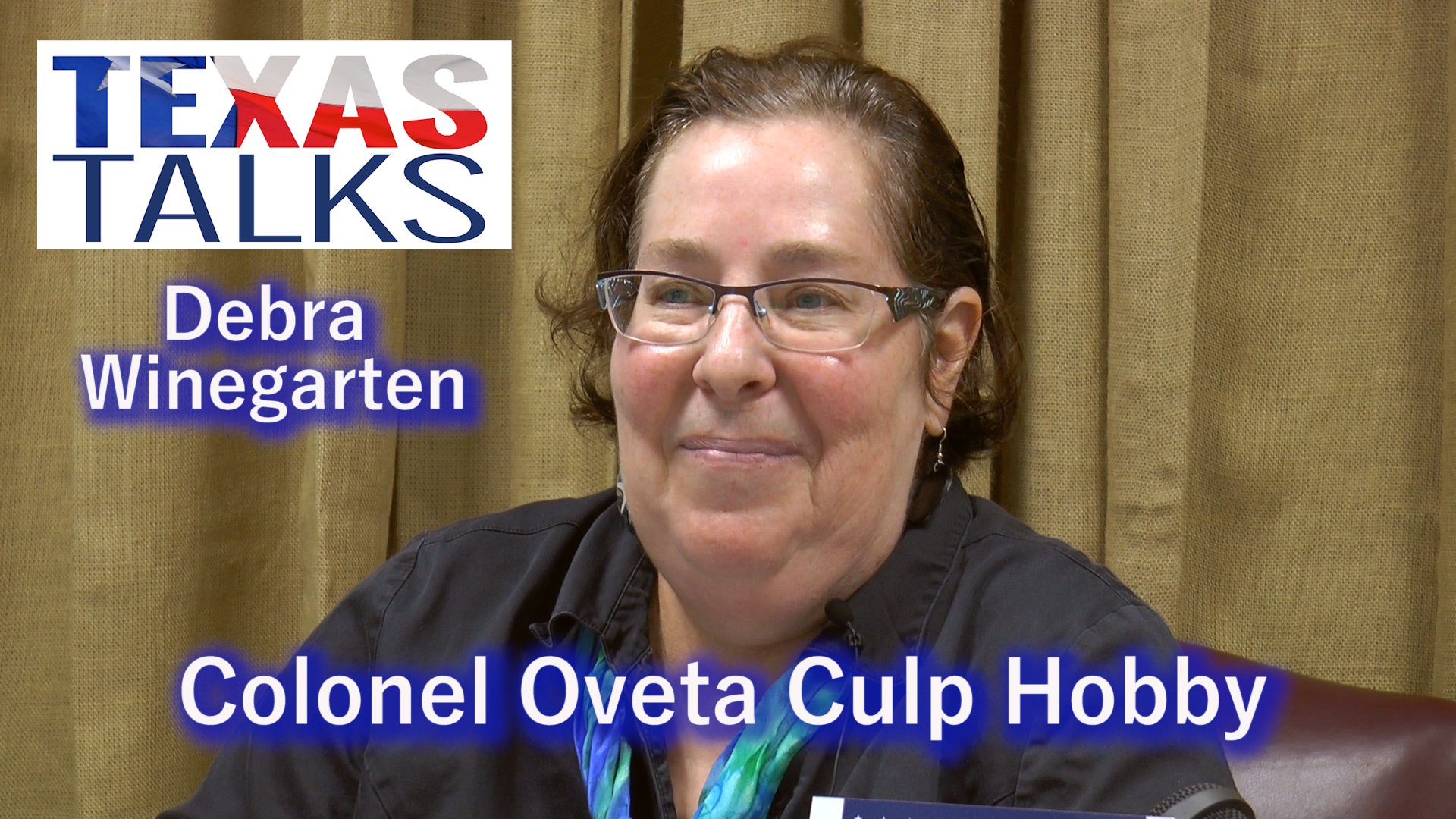
Debra Winegarten. sociologist, lecturer and author of the biography "Oveta Culp Hobby - Colonel, Cabinet Member, Philanthropist," sits down to discuss Oveta's unique story and impact on Texas and the U.S. during WWII. Oveta Culp Hobby (1905–1995) had a lifetime of stellar achievement. During World War II, she was asked to build a women’s army from scratch—and did. Hobby became Director of the Women’s Army Corps and the first Army woman to earn the rank of colonel. President Eisenhower chose her as Secretary of Health, Education, and Welfare, making her the second woman in history to be appointed to a president’s cabinet. When she wasn’t serving in the government, Hobby worked with her husband, former Texas governor William P. Hobby, to lead a media empire that included the Houston Post newspaper and radio and TV stations. She also supported the Houston community in many ways, from advocating for civil rights for African Americans to donating generously to the Houston Symphony and the Museum of Fine Arts.
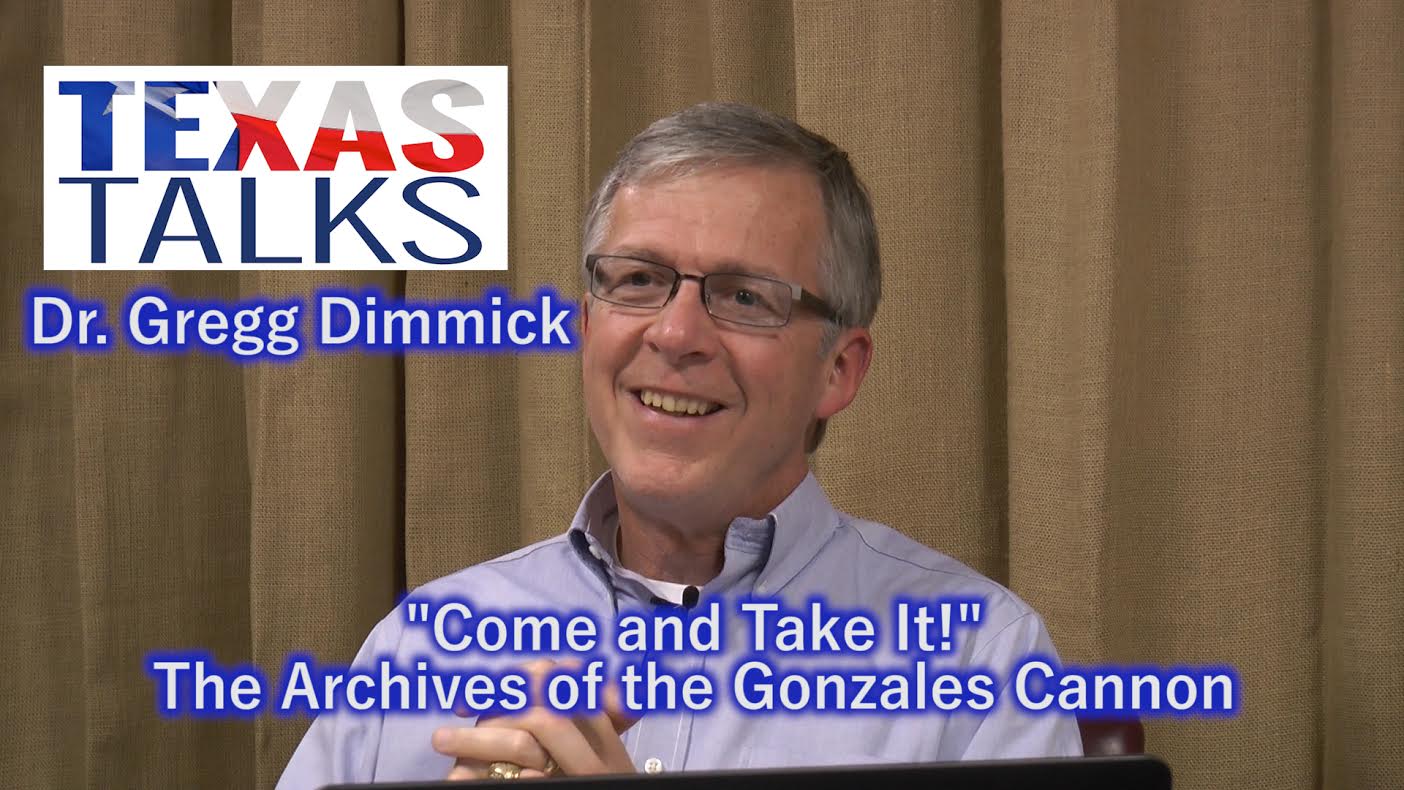
Gregg Dimmick, MD, avocational archaeologist and expert on the Mexican Army in Texas, discusses the story of the 'Come and Take It' cannon from the Mexican viewpoint. Discover which cannon at Gonzales was of interest to the Mexican Army. Through examination of the Bexar County Archives, Dimmick presents his argument in this very interesting webinar.
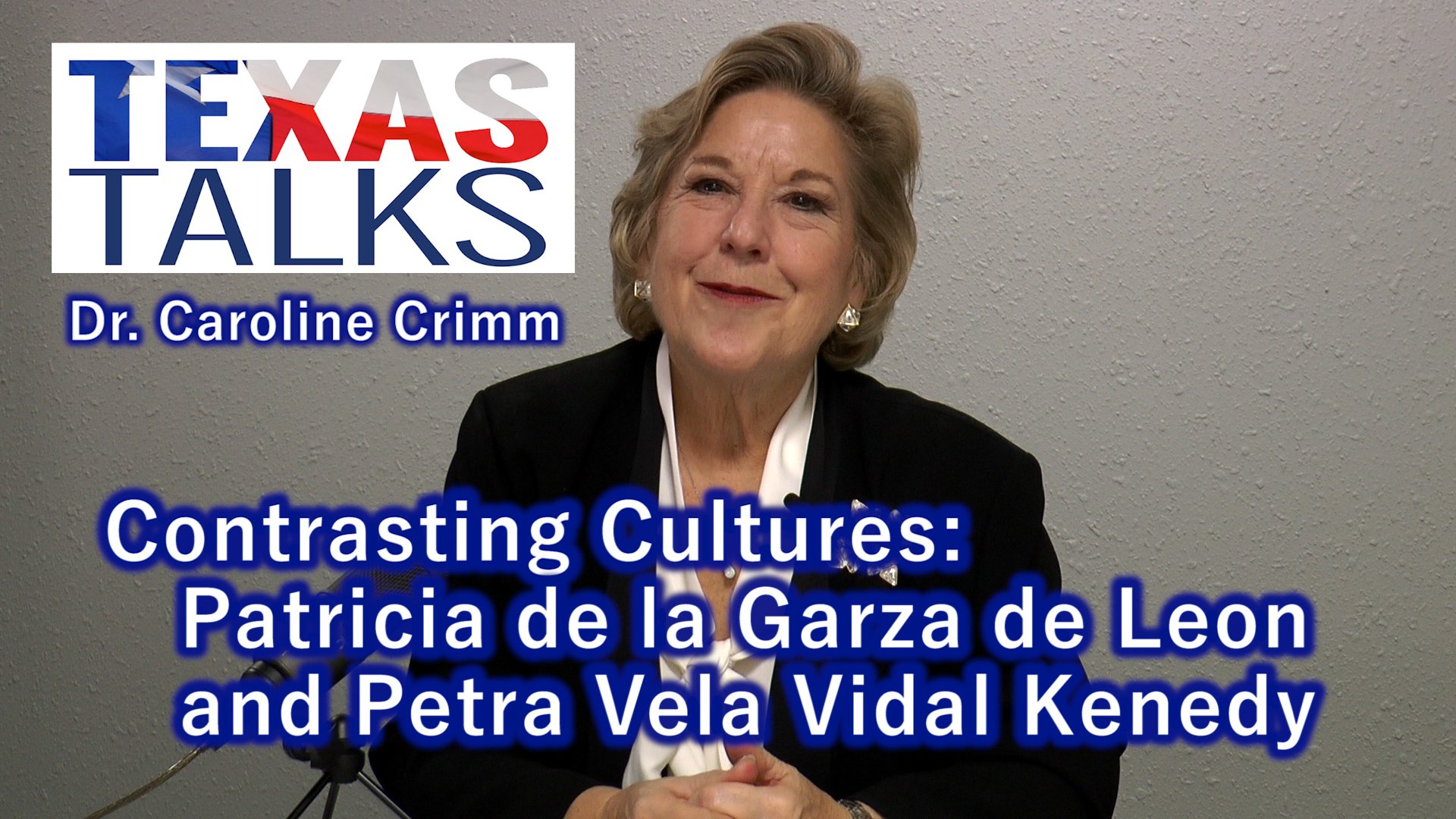
Dr. Crimm's full Texas Talks on two Tejano women: Patricia de Leon and Petra Vela Kenedy, recorded in December 2015, contrasts these women's experiences in 19th century Texas. Patricia de la Garza de Leon was born in 1775 from a prominent Mexican family. She inherited a fortune from her father, which she used, along with her empresario husband, Martin de Leon’s money earned from the sale of livestock to establish the de Leon Colony in Texas. Patricia was an influential figure in the founding of the city of Victoria. She gave birth to 10 children. In 1824, Patricia, Martin and their children moved to the land granted to them by the newly independent Mexican government. There, on the bank of the Guadalupe River in southwest Texas, they established the city Guadalupe Victoria in honor of Mexico’s first president. She also helped found a church, Nuestra Senora de Guadalpue, and was also actively engaged in helping the family’s wealth increase. In 1833, she became a widow, but managed the family’s property quite successfully. After the Texas Revolution, the family became victims of anti-Mexican sentiments and had to move to Louisiana. She returned to Texas in 1844 to sell some of her 25,000 acres of land, to re-claim her scattered belongings, and resume her work with the Church. Petra Vela Vidal Kenedy was the matriarch of one of the most important families in Texas history. She was born in 1825 in Mier, Mexico to an upper class family. In December 1840, at age sixteen, she met a colonel in the Mexican army, Luis Vidal, with whom she had eight children before he died in 1849. Petra later met and married Mifflin Kenedy in 1852 in Mier, Mexico and, shortly thereafter, moved to Brownsville where she dedicated her life to childbearing, child rearing, and domestic endeavors. Petra was a devout Catholic and donated generous contributions to the Church in Brownsville. She died at age 62 in 1885 in Corpus Christi. Both women experienced different treatment under Mexican and Anglo rule and their legacies and indomitable spirits endure.

TSHA’s eBay Auction
We are a 501(c)3 non-profit organization, all proceeds support our many programs and publications.